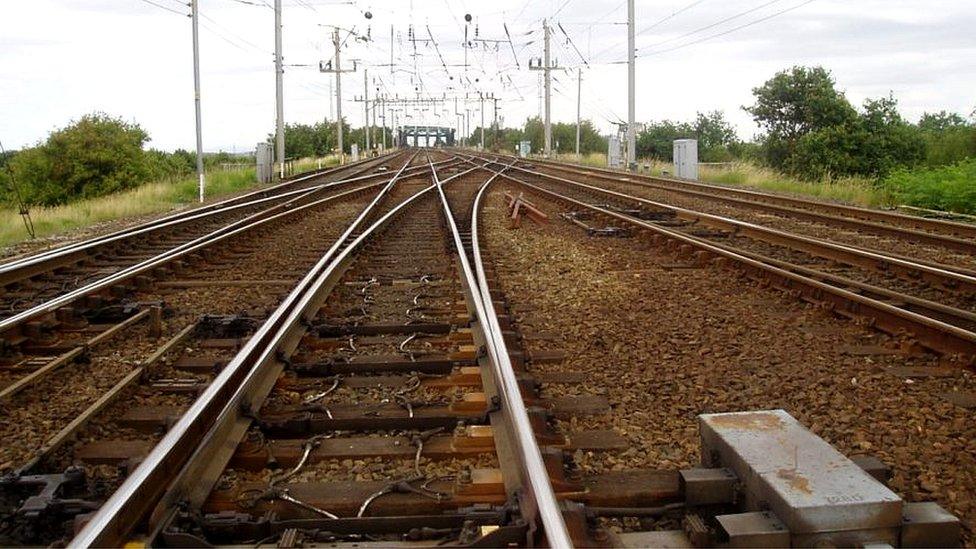FirstGroup replaces Virgin to run West Coast route
- Published
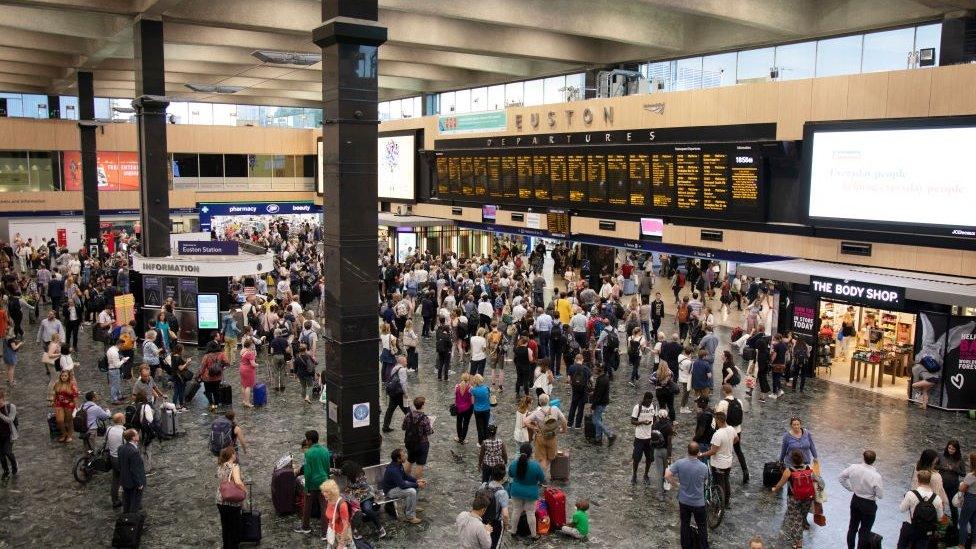
FirstGroup is to take over the running of the West Coast mainline train route, connecting London Euston to Glasgow Central, from December.
Along with Italian firm Trenitalia, FirstGroup said the route would pave the way for an era of high-speed rail.
First Trenitalia replaces Virgin Trains, which was barred from bidding to keep the route.
Transport Secretary Grant Shapps said the bid was part of a shift to a new model for rail.
Mr Shapps said the partnership was supported by Keith Williams, who has been commissioned to look at changes to the rail franchising system and who has told the BBC that government involvement should be limited to overall policy and budget decisions.
The transport secretary told BBC Radio 4's Today programme that it was a "new type of contract, the idea here is that the risk is shared so that when it comes to the changes that Keith Williams has proposed this is fully compliant with it.
"We need them [the rail companies] paid for running the blooming trains on time and not for doing a bunch of other things. And that's what this new contract on the West Coast is about."
The new partnership will operate in two phases. The first will run from 8 December to March 2026, when First Trenitalia will operate the existing InterCity West Coast services. The second phase will run from March 2026 to March 2031, when it will operate the HS2 high-speed rail service.
Mr Shapps will tell MPs about the timescale and terms of reference of review of HS2 by Douglas Oakervee - a former chairman of the high-speed network - in "due course",
It said its 56 Pendolino trains would be completely refurbished, with more reliable free Wi-Fi and better catering. By 2022, it says, it will offer more than 260 extra services each week, increasing seat miles by more than 10% compared with 2017-18. This will cost £117m, the Department for Transport said.


The trains that run up and down the West Coast Main Line are called Pendolinos, with underlying technology supplied by what was Fiat Ferroviaria. Fitting, then, that an Italian company should finally start running the line - Trenitalia is the joint venture partner of First Group in the new West Coast franchise.
Some rail commentators greeted this morning's announcement with surprise: not that First Group and the Italians had won it, but that a decision had been made at all.
The government's franchising policy has been in disarray, with legal challenges, an abandoned competition, and in the background, a wide-ranging review of how the railways are run.
The findings of that review, by former British Airways chief executive Keith Williams, are about to be published, so why award an important franchise just when the railways might be on the brink of another reorganisation?
The Department for Transport says the West Coast deal is, in fact, a vision of things to come and has Mr Williams' blessing.
It is apparently flexible enough to cope with whatever he recommends and the indications are that his main finding - that Network Rail should take a big role in the strategic direction of the railway - won't much impinge on this franchise.
Another potential trap awaits, however. Stagecoach, one of the First Group's rivals, was in the running for the West Coast deal until it was blocked from bidding, because it refused to take on pensions risk. It has won the right to a judicial review of that decision.

'Risk v reward'
FirstGroup, based in Aberdeen, is being awarded the contract at a time when it has been overhauling its business, seeking a buyer for its Greyhound buses in the US. It is also looking at spinning off its UK bus division, First Bus.
Its First Rail business also operates the South Western Railway and TransPennine Express.
Its chief executive, Matthew Gregory, had indicated the group's train franchises could be reviewed, depending on the terms offered by the government.
However, Mr Gregory's concerns about the profitability of train franchises appear to have been addressed by the Department for Transport.
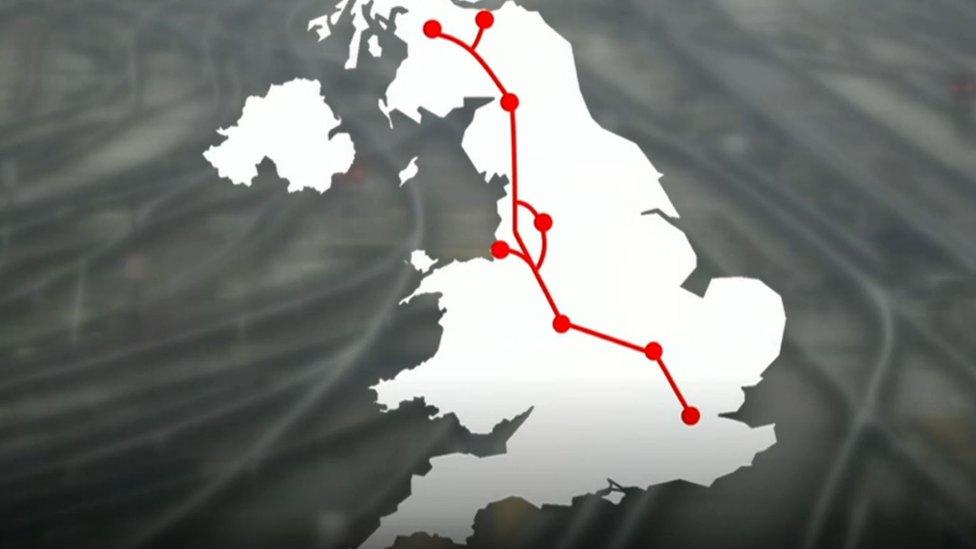
The West Coast Main Line runs up and down the UK
Mr Gregory said: "The differences between this contract and more traditional rail franchises were reflected in the terms set out by the [Department for Transport], which has resulted in a more appropriate balance of risks and rewards for us as operators.
"The West Coast Partnership's first phase allows us to earn returns on the significant investments in services and facilities for passengers, but protected by a much improved revenue risk-sharing mechanism.
"This will transition to a management contract in the second phase, ensuring we can really focus on using the respective skills and experience within our joint venture to deliver the desired benefits of the HS2 project for passengers and the country."
'Flawed franchising system'
The RMT's general secretary, Mick Cash, described it as a "another political fix by a government whose privatised franchise model is collapsing around their ears" and warned it was "doomed to failure and sure to result in yet more rail chaos".
Questions about the rail franchising system were raised last week, when the government cancelled the competition to operate rail services between London, Kent and parts of East Sussex - currently run by Southeastern.
The awarding of the West Coast Mainline route prompted Labour to renewed its call to nationalise the railways.
Shadow transport secretary Andy McDonald said: "Awarding a complex contract for both the West Coast Partnership and HS2 services to FirstGroup, a company with questions over its finances, is a gross error of judgement."
But Paul Plummer, chief executive of industry body the Rail Delivery Group, said: "Virgin-Stagecoach have brought significant benefits to passengers on the West Coast route including nearly tripling the number of trains between London and Manchester. We have no doubt that First Trenitalia will build on that record with plans for new trains and more services."
'Book travel as normal'
But Mr Shapps told the BBC: "Privatisation has allowed the railway to expand massively - twice as many people, twice as many journeys and record number of people travelling on our railways, so I don't think nationalisation is the answer at all. Why would you put politicians in control?"
The Department for Transport said the new contract award was a "significant move away from the previous flawed franchising system" and would use a forecast revenue mechanism (FRM) - which offers protection against shortfalls in estimated revenues - to avoid a repeat of the issues that affected the previous East Coast Main Line franchise.
Last year, services on the East Coast Main Line were brought back under government control.
FirstGroup said that if such a system had been in use on its South Western Railway and TransPennine Express, these contracts would have remained profitable.
A spokesperson for Virgin Trains - which has operated train services for 22 years - said it would work with First Trenitalia to "ensure a seamless handover for customers, who should still book and travel as normal".
The Department for Transport said that by December 2022, there would be 263 extra train services every week, with Motherwell set to become a major calling point for most West Coast Partnership services. Direct services from London to destinations including Llandudno and Gobowen will now be introduced, while Walsall will get its first direct InterCity services.
Subject to approval from the Office of Rail and Road, First Trenitalia will operate two trains an hour between Liverpool and London - a route that Virgin Trains had said it also hopes to run by launching a new hourly train service between the two cities from May 2021.
- Published10 April 2019
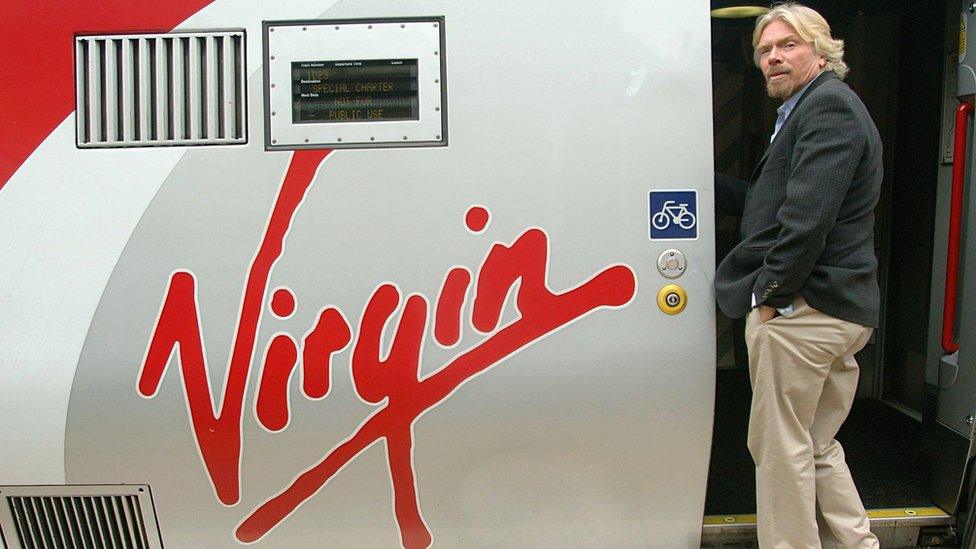
- Published7 August 2019
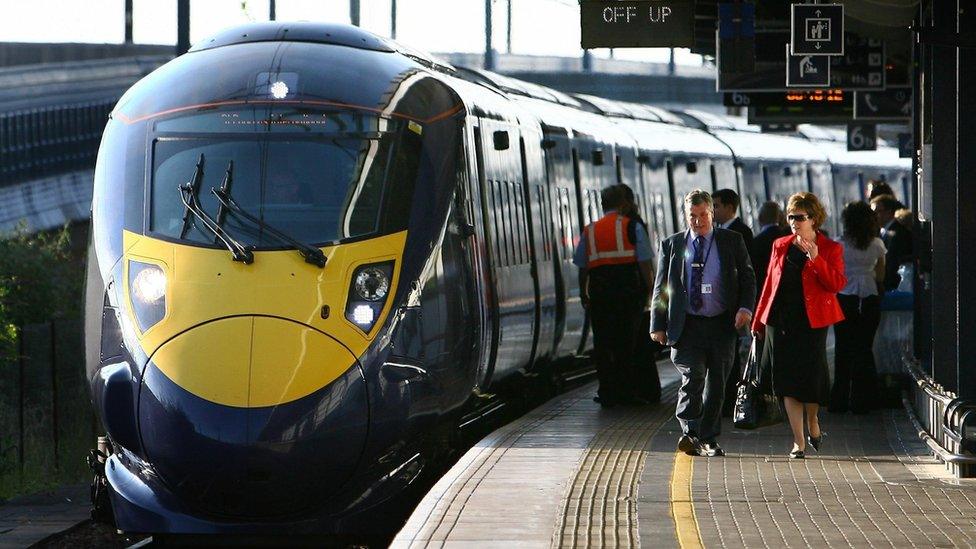
- Published18 July 2019
